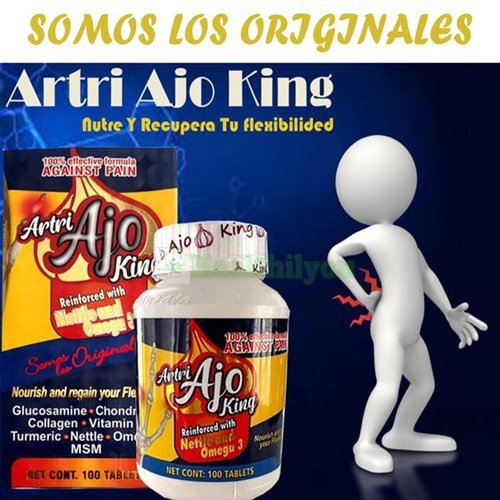Walgreens and CVS Rated ‘Most Difficult’ for Opioid Prescriptions
/By Pat Anson, PNN Editor
When Walgreens and CVS signed the National Opioid Settlements in late 2022, they agreed to pay over $10 billion to states, cities and counties that sued them for their alleged roles in causing the opioid epidemic.
The nation’s two biggest pharmacy chains also agreed to watch for suspicious orders, report any “problematic” prescribers, and to strictly limit the amount opioid pain medication they can dispense in any given month. Opioids, in effect, were going to be rationed to their customers.
Pain patients are now paying a price for that agreement.
In a large survey of nearly 3,000 pain patients by PNN, over 90% of those with an opioid prescription said they experienced delays or problems last year getting their medication. Most patients went to another pharmacy, but nearly 20% still couldn’t to get their prescriptions filled – largely because opioids such as hydrocodone and oxycodone are in short supply.
The average patient had problems at a pharmacy at least three times in 2023. Some had trouble each time they went in for a monthly refill.
“I spent eight days trying to get my last prescription pills and finally got it filled two days ago, but I had to settle for only one third of my prescription,” said a patient who went through withdrawal for 8 days waiting for her medication.
“It's an unreal concept that I can have the piece of paper, I can have the doctor, I can have the pharmacy, I can have the money, and I can have the insurance, but I can't go and have the little medicine that I need to try to make it through this situation.”
HOW MANY TIMES DID YOU HAVE A PROBLEM OR DELAY FILLING AN OPIOID PRESCRIPTION IN LAST 12 MONTHS?
‘There Is Always an Issue’
Asked which pharmacy chain was the most difficult to get an opioid prescription filled, over half the patients in our survey selected either Walgreens (30%) or CVS (26%).
“I've used Walgreens for all of my medications for the past 15 years and within the past year or so I have started having issues almost every month with them filling my pain medication,” a patient told us.
“My local CVS says that they cannot get hydrocodone-acetaminophen at all. Yet, my local Giant Food supermarket can. Very strange,” said another.
“I used Walgreens for many years. Recently they have had several new pharmacists. One pharmacist would not fill ANY controlled substances. The current pharmacist will only order about 3 to 4 times per month. She doesn’t care if patients don’t get their medications,” another patient wrote.
“CVS continually gives me a hard time to fill my Rx even though I have been on it for over 7 years. It is either out of stock, or they argue with me about filling it,” said another.
“Every month when I have to get my medication renewed there is always an issue,” explained another patient. “Walgreens always give people a hard time. I've seen many people standing in line and just walk out.”
Patients also had trouble getting their prescriptions filled at Walmart, Kroger, Rite-Aid, Publix and small independent pharmacies, but they had far fewer complaints. CVS and Walgreens have about four times as many pharmacy stores as Rite-Aid, which may explain why they were singled out more often than the other chains.
AT WHAT PHARMACY DID YOU EXPERIENCE THE MOST DIFFICULTY GETTING AN OPIOID PRESCRIPTION FILLED?
When told about the findings from PNN’s survey, CVS declined to comment and Walgreens provided a brief statement saying it “follows all applicable federal and state laws and regulations related to the dispensing of controlled substances.”
More Cautious Dispensing
Even before signing the opioid settlements, Walgreens and CVS were among the first pharmacy chains to look at ways to minimize their dispensing of opioid medication.
In 2017, CVS said it would limit the dose and supply of opioids to patients enrolled in commercial, employer or Medicaid health plans. The policy was adopted after CVS was fined hundreds of millions of dollars for violations of the Controlled Substances Act, many of those violations involving opioids.
In 2013, Walgreens adopted a “secret checklist” that required its pharmacists to look for red flags, such as patients paying for opioids in cash, seeking an early refill, or taking a high number of pills. If anything was suspicious, pharmacists were told to “inform the patient that it may take additional time to process the prescription.” Like CVS, the policy was implemented after Walgreens was fined millions of dollars by the DEA for violating rules for dispensing controlled substances.
Walmart and Kroger also signed the National Opioid Settlements, while Rite-Aid filed for bankruptcy, in part due to the expense of defending itself in court. Thousands of pharmacies around the country are being closed due to over-expansion, poor business decisions, and the rising cost of lawsuits.
Patients have noticed that the fines and lawsuits have made pharmacists more cautious. In our survey, dozens of patients said a pharmacist told them they would not fill their opioid prescription because they might get in trouble or lose their job. Many patients don’t know it, but pharmacists have a “corresponding responsibility” to exercise their professional judgement by not filling a prescription they think is inappropriate.
“Pharmacies and pharmacists have become an arm of law enforcement,” one patient wrote. “Pain medication prescriptions are treated as suspicious, with the pharmacist often questioning the appropriateness of my current MME (morphine milligram equivalent) levels while I’m undergoing a rapidly forced taper,” one patient wrote.
“I have been hung up on just for calling (CVS) and asking if they would put my prescription in the queue for filling the next day. Call disconnected by pharmacist,” another patient said. “I emailed a written complaint to CVS and never heard back.”
“The new manager in pharmacy at Walgreens, which is where I have gotten my pain medicine for 20 years, feels that I receive too much even though he has no idea of my diagnosis. He makes me feel like I am a low-class drug addict,” a patient told us. “I get much less than so many people I know, so I finally had to switch to mail order with OptumRx.”
‘Independent Pharmacies Are Better’
Many patients have found that it’s easier to get a prescription filled at smaller pharmacy chains or at independent pharmacies that were not caught up in opioid litigation.
“Independent pharmacies are better. I used to fill my opioid scripts at Walgreens. The pharmacist there always gave me a difficult time. He would refuse to fill unless he received a confirmation note from my pain specialist that I was taking the appropriate dose. I finally left him for an independent pharmacy,” one patient told us.
“I'm fortunate to have a compassionate, independent pharmacy that bends over backwards to ensure I have the meds my doctor prescribes. If I was stuck with a chain pharmacy like Walgreens or CVS, my experience would be completely different. Those pharmacies treat pain patients like criminals,” wrote another.
“I have used a small mom and pop pharmacy for over five years with no problems. Their only requirement is I get all my prescriptions filled at their pharmacy, not just the opioid or muscle relaxant,” said another patient. “Prior to changing, I had used CVS and Walgreens pharmacies, with both offering nothing but problems and harassment when taking my scripts in.”
“Thankfully, I live in a very small town and have had a great experience with my pharmacy so far. Small mom and pop set up. So far, only handful of times had them short me pills when they were unable to obtain the meds. Only had to wait a day or two for them to fill the rest,” wrote another patient.
‘My Pharmacist Is Awesome’
While often frustrated by the ordeal of getting their prescriptions filled, many patients appreciate how they are treated by pharmacists. Asked what their overall experience has been with pharmacists, respondents were evenly divided. Nearly a third said their experience with pharmacists was “very positive” or “positive” – about the same number who said their experience was “negative” or “very negative.”
“My pharmacist is pretty awesome and always has the opioid medications in stock,” one patient said.
“Generally, my treatment at pharmacies has been first rate. Not so much the doctors,” said another.
“My pharmacist is excellent and knowledgeable,” another patient wrote.
“I made friends with my pharmacist because he knows I have several chronic pain syndromes,” another patient told us. “When I first met him, he didn't want to fill me, but now he helps me get my meds filled.”
“In my experience, it’s pharmacist specific. Some are compassionate, others think everyone is an addict,” another patient said.
OVERALL, WHAT HAS BEEN YOUR EXPERIENCE WITH PHARMACISTS AS A PAIN PATIENT?
PNN’s online survey was conducted from November 13 to December 31, 2023. A total of 2,961 U.S. pain patients or caregivers participated.









